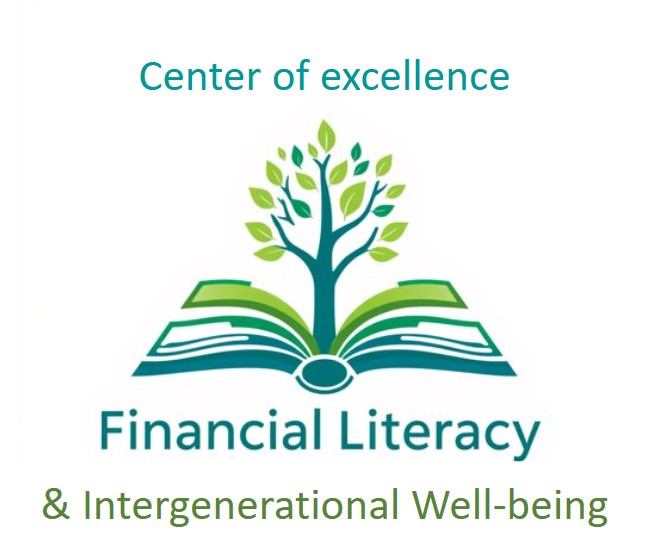Nano Influencers And Social Factors As Drivers Of Hedonic Consumption Among Generation Z In Indonesia's Social Commerce
 Abstract Views:
210 times
Abstract Views:
210 times
 PDF Downloads:
124 times
PDF Downloads:
124 times
Abstract
Purpose: This study seeks to shed light on the often-overlooked role of nano influencers in shaping hedonic consumption among Generation Z (Gen-Z) in Indonesia’s rapidly evolving social commerce landscape. While much attention has been given to macro influencers, our research suggests that smaller, more trusted voices may hold the key to authentic consumer engagement.
Method: A cross-sectional survey of 200 Gen-Z consumers was conducted, utilizing Structural Equation Modeling (SEM) via Smart PLS to analyze the influence of nano influencers, reference groups, and communities on hedonic consumption. The research framework focuses on the social dynamics of peer validation over family influence.
Result: The findings indicate that nano influencers significantly enhance the influence of peer groups on Gen-Z’s hedonic consumption, while family influence appears less relevant. This result points to a shift in consumer behavior, where peer-driven validation is dominant. Marketers are encouraged to reconsider their strategies, placing greater emphasis on nano influencers for more genuine connections in the social commerce era.
Downloads
References
Ahmed, A., & Rathore, T. (2024). The Evolution Of Influencer Marketing. In Advances In Data Analytics For Influencer Marketing: An Interdisciplinary Approach (pp. 17-27). Cham: Springer Nature Switzerland. https://doi.org/10.1007/978-3-031-07835-6_2
Akram, U., Junaid, M., Zafar, A. U., Li, Z., & Fan, M. (2021). Online purchase intention in Chinese social commerce platforms: being emotional or rational?. Journal of Retailing and Consumer Services, 63, 102669. https://doi.org/10.1016/j.jretconser.2021.102669
Attar, R. W., Almusharraf, A., Alfawaz, A., & Hajli, N. (2022). New trends in e-commerce research: Linking social commerce and sharing commerce: A systematic literature review. Sustainability, 14(23), 16024. https://doi.org/10.3390/su142316024
Balaji, M. S., Jiang, Y., & Jha, S. (2021). Nanoinfluencer marketing: How message features affect credibility and behavioral intentions. Journal of Business Research, 136, 293-304. https://doi.org/10.1016/j.jbusres.2021.07.036
Bennett, D., Diamond, W., Miller, E., & Williams, J. (2020). Understanding bad-boy celebrity endorser effectiveness: The fantasy-based relationship, hedonic consumption, and congruency model. Journal of Current Issues & Research in Advertising, 41(1), 1-19. https://doi.org/10.1080/10641734.2020.1718798
Bowden, J., & Mirzaei, A. (2021). Consumer engagement within retail communication channels: an examination of online brand communities and digital content marketing initiatives. European Journal of Marketing, 55(5), 1411-1439. https://doi.org/10.1108/EJM-11-2019-0749
Cao, D., Meadows, M., Wong, D., & Xia, S. (2021). Understanding consumers’ social media engagement behaviour: An examination of the moderation effect of social media context. Journal of Business Research, 122, 835-846. https://doi.org/10.1016/j.jbusres.2020.09.046
Chang, C. W., & Chang, S. H. (2023). The Impact of Digital Disruption: Influences of Digital Media and Social Networks on Forming Digital Natives’ Attitude. Sage Open, 13(3), 21582440231191741. https://doi.org/10.1177/21582440231191741
Chen, Y. L., Senande, L. L., Thorsen, M., & Patten, K. (2021). Peer preferences and characteristics of same-group and cross-group social interactions among autistic and non-autistic adolescents. Autism, 25(7), 1885-1900. https://doi.org/10.1177/1362361320903661
Christanti, C., & Kembau, A. S. (2024). Pengaruh Strategi Pemasaran Konten Dan Afiliasi Terhadap Pembelian Impulsif: Peran Mediasi Pemasaran Viral Dan Kepercayaan. Modus, 36(2), 198-223. https://doi.org/10.5678/modus.v36i2.198
Christiarini, R., Pratama, D., & Putra, E. Y. (2024). The Influence of Perceived Country Origin of Green Products Towards Generation Z: Local vs. Global. Journal of Entrepreneurship and Business, 5(3), 247-262. https://doi.org/10.24123/jeb.v5i3.6878
Essiz, O., & Mandrik, C. (2022). Intergenerational influence on sustainable consumer attitudes and behaviors: Roles of family communication and peer influence in environmental consumer socialization. Psychology & Marketing, 39(1), 5-26. https://doi.org/10.1002/mar.21643
Fülöp, M. T., Topor, D. I., Căpușneanu, S., Ionescu, C. A., & Akram, U. (2023). Utilitarian and hedonic motivation in E-commerce online purchasing intentions. Eastern European Economics, 61(5), 591-613. https://doi.org/10.1080/00128775.2023.2251267
Firellsya, G., Kembau, A. S., Bernanda, D. Y., & Christin, L. (2024). Tren Belanja Online Wanita Gen-Z: Eksplorasi Faktor-Faktor di Balik Dominasi Wanita Gen-Z pada Platform Shopee Menggunakan Model UTAUT2. Jurnal Informatika Ekonomi Bisnis, 18(2), 184-196. https://doi.org/10.6789/jieb.v18i2.184
GlobalData. (2024). Indonesia e-commerce payments to surge by 15.5% in 2024, reveals GlobalData. GlobalData. Retrieved January 6, 2025, from https://www.globaldata.com
Gupta, A. S., & Mukherjee, J. (2022). Long-term changes in consumers' shopping behavior post-pandemic: an exploratory study. International Journal of Retail & Distribution Management, 50(12), 1518-1534. https://doi.org/10.1108/IJRDM-01-2022-0015
Himelboim, I., & Golan, G. J. (2023). A social network approach to social media influencers on Instagram: The strength of being a nano-influencer in cause communities. Journal of Interactive Advertising, 23(1), 1-13. https://doi.org/10.1080/15252019.2023.1917543
Huwaida, L. A., Yusuf, A., Satria, A. N., Darmawan, M. A., Ammar, M. F., Yanuar, M. W., ... & Yaiprasert, C. (2024). Generation Z and Indonesian Social Commerce: Unraveling key drivers of their shopping decisions. Journal of Open Innovation: Technology, Market, and Complexity, 10(2), 100256. https://doi.org/10.3390/joitmc10020056
Jaud, D. A., Gergaud, O., & Lunardo, R. (2023). Family and peer communication and wine consumption among young adults: Examining the role of responsible drinking practices. British Food Journal, 125(6), 2070-2086. https://doi.org/10.1108/BFJ-04-2022-0647
Kembau, A. S., Kolondam, A., & Mandey, N. H. J. (2024). Virtual Influencers and Digital Engagement: Key Insights from Indonesia's Younger Consumers. Jurnal Manajemen Pemasaran, 18(2), 123-136. https://doi.org/10.1234/jmp.v18i2.123
Kembau, A. S., & Lendo, F. B. (2025, May). Augmented Reality in Fashion and Beauty Product Marketing: A Preliminary Study of Immersive Marketing In Indonesian E-Commerce. In 12th Gadjah Mada International Conference on Economics and Business (GAMAICEB 2024) (pp. 379-395). Atlantis Press. 10.2991/978-94-6463-692-5_20
Liao, Y. (2021). The sources and influencing factors of hedonistic consumption. Psychology, 12(4), 660-674. https://doi.org/10.4236/psych.2021.124039
Melnyk, V., Carrillat, F. A., & Melnyk, V. (2022). The influence of social norms on consumer behavior: A meta-analysis. Journal of Marketing, 86(3), 98-120. https://doi.org/10.1177/00222429211045976
Müller-Pérez, J., Acevedo-Duque, Á., Rettig, P. V., García-Salirrosas, E. E., Fernández-Mantilla, M. M., Izquierdo-Marín, S. S., & Álvarez-Becerra, R. (2023). Consumer behavior after COVID-19: Interpersonal influences, eWOM, and digital lifestyles in more diverse youths. Sustainability, 15(8), 6570. https://doi.org/10.3390/su15086570
Rahman, A., Fauzia, R. N., & Pamungkas, S. (2020). Factors influencing use of social commerce: An empirical study from Indonesia. The Journal of Asian Finance, Economics and Business, 7(12), 711-720. https://doi.org/10.13106/jafeb.2020.vol7.no12.711
Sandi, H. A., & Atmaja, F. T. (2024). The Impact of Information Content and Entertainment Content on Customer Engagement and Customer Loyalty: A Study on Scarlett's Customer Base. Journal of Entrepreneurship and Business, 5(1), 69-78. https://doi.org/10.24123/jeb.v3i2.4801
Sekaran, U., & Bougie, R. J. (2022). Research Methods for Business: A Skill Building Approach (8th ed.). Wiley.
She, L., Rasiah, R., Waheed, H., & Pahlevan Sharif, S. (2021). Excessive use of social networking sites and financial well-being among young adults: The mediating role of online compulsive buying. Young Consumers, 22(2), 272-289. https://doi.org/10.1108/YC-06-2020-1183
Subarkah, W. P., Santoso, A., & Widhianingrum, W. (2023). A Study of Player Behavior And Social Influences to Purchase Intention Mobile Legends: Bang Bang In-Game Item. Journal of Entrepreneurship & Business, 4(3), 138-158. https://doi.org/10.24123/jeb.v4i3.5639
Soto-Vásquez, A. D., & Jimenez, N. (2022). Nano-& Micro-Influencers. In The Emerald Handbook of Computer-Mediated Communication and Social Media (pp. 305-321). Emerald Publishing Limited.
Wannewitz, M., & Garschagen, M. (2024). The role of social identities for collective adaptation capacities–general considerations and lessons from Jakarta, Indonesia. International Journal of Disaster Risk Reduction, 100, 104194. https://doi.org/10.1016/j.ijdrr.2023.104194
We Are Social. (2024, January). Digital 2024: Laporan data dan tren global. Retrieved January 6, 2025, from https://wearesocial.com/id/blog/2024/01/digital-2024/
Wilska, T. A., Holkkola, M., & Tuominen, J. (2023). The role of social media in the creation of young people’s consumer identities. Sage Open, 13(2), 21582440231177030. https://doi.org/10.1177/21582440231177030
Yang, E., Kembau, A. S., Tarigan, A., & Lendo, F. B. (2024). The strategic role of consumer ethnocentrism, social media marketing, and brand ambassadorship in shaping purchase decisions for local Indonesian skincare brands on e-commerce platforms. JMBI UNSRAT (Jurnal Ilmiah Manajemen Bisnis dan Inovasi Universitas Sam Ratulangi), 11(1), 1342-1360. https://doi.org/10.5678/jmbiunsrat.v11i1.1342
Zhang, W., Zhang, W., & Daim, T. U. (2023). Investigating consumer purchase intention in online social media marketing: A case study of TikTok. Technology in Society, 74, 102289. https://doi.org/10.1016/j.techsoc.2023.102289

This work is licensed under a Creative Commons Attribution 4.0 International License.
Articles published in Journal of Entrepreneurship & Business are licensed under a Creative Commons Attribution 4.0 International (CC BY) license. You are free to copy, transform, or redistribute articles for any lawful purpose in any medium, provided you give appropriate credit to the original author(s) and the journal, link to the license, and indicate if changes were made.
Authors submitting to this journal agree to make their work freely available under the CC BY 4.0 license, ensuring broad dissemination and reuse. The full license details can be accessed at https://creativecommons.org/licenses/by/4.0/.
This ensures that they receive the maximum dissemination because there are no barriers to access. This license allows readers to disseminate and reuse the paper, but always requires them to grant the authors and the first publication full credit.
While JEB upholds ethical publishing standards, the responsibility for ensuring originality and compliance with copyright regulations lies with the authors. The journal is not liable for any legal claims related to the content of published articles.
For further inquiries, please contact the editorial team.

 DOI:
DOI:










